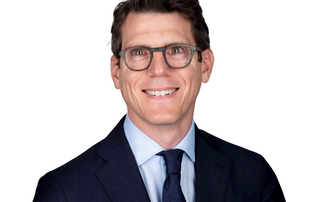Since January 2018, when President Trump began putting tariffs on imports from various countries, market returns have diverged massively. The best returning asset class has been developed market government bonds. It shows that if investors had been able to predict the course of the politically motivated trade war, they could have eked out greater returns and perhaps even avoided most of the Q4 2018 market bloodbath.
With 2020 set to be defined by significant political events (including a US presidential election), investors need to take a closer look at how politics affects markets and investments. What could happen? What's the best way to prepare for it? What is priced into the markets? Which events could be concerns or opportunities?
In this article, we look at the political and geopolitical considerations for investors in 2020.
Populism
The recent renaissance of populism appears to be inspired by the huge difference in income growth between the bottom 90% of the population in western countries and the top 1%. At the same time, emerging countries have come out of poverty and done better than the average western person.
Traditional left-wing politicians blame the rich for these income discrepancies, but more recently right-wing politicians have blamed foreigners, through immigration or globalisation. However, populism hasn't really affected markets, and is unlikely to matter to investors in 2020.
Socialism
On the other hand, what would happen if the populist wave were replaced by socialist politicians?
Markets dislike high taxes, unbridled social spending, nationalisation and government intervention. However, if a left-wing politician gets elected, they need a majority big enough to thwart opposition and pass their proposed socialist legislation.
- In the US, the president would need a majority in both houses of Congress, which is rare
- In the UK, the Labour party would need an outright majority.
Without these majorities, the legislative programme could be severely weakened and have less effect on markets than feared.
2020 political events timeline
The 2020 US presidential election
Historically, the differences between what Democrats and Republicans represented were minimal. Now, with clear differences between both parties, the outcome of the US presidential election matters more. President Trump's fixation with trade deficits is a clear example.
However, US presidents have limited legislative power and need to work with both branches of Congress to pass laws. Where one party runs the House and the other the Senate, little legislation normally gets through. President Trump has broadened his powers, but his potential impeachment could disrupt trade negotiations and exacerbate tensions.
Regardless of the outcome, the run-up to the election will create risks and opportunities for investors.
Geopolitical tensions - a new cold war between the US and China?
In the previous cold war between the two superpowers, the Soviets were hardly economic rivals to the US. Today, China is arguably less of a military competitor yet a stronger economic challenger (see table below), having built state-of-the-art infrastructure and turned into a manufacturing powerhouse. China has thrown down the gauntlet and the US has picked it up. This has led to trade tariffs, technology bans, intellectual property fights and tensions in the South China Seas.
In principle, investors could remain unconcerned. However, a massively escalated trade and technology war would affect everyone, reduce world growth and cause a huge slump in equities.
Globalisation could morph into regionalisation, where a country dominates the continent within which it trades: e.g. China in Asia and the US in the Americas. Alternatively, the US and China might agree a truce with a limited trade deal, which would give markets a fillip before the US election.
Investing abroad
Diversified portfolios often invest in countries without western democratic traditions. Although these regions offer potentially higher growth, there are dangers. Portfolios may be affected by poor corporate governance, partially state-owned firms, opaque financial statements, meddling governments, corruption, or even expropriation.
Ecological issues
ESG investing (environment, social and governance) can even outstrip the performance of conventional portfolios. On the other hand, if governments are pressured into causing deep cuts to industry through environmental regulation, it could have a growth-dampening effect and hurt investor sentiment. Witness the slump in European auto sales triggered by the change in emissions standards last year.
Brexit
Reduced commerce between the UK and the EU will affect growth. Trade agreements take years, if not decades, to be signed, so relief for exporters may be slow to arrive, even after the UK finally leaves the EU.
Individual firms could still carve out a profitable trading position; it's a matter of finding the right investments. Careful ‘bottom-up' stock picking will matter enormously. The currency aspect will also need thorough analysis, as sterling could fluctuate.
How can investors navigate the political landscape?
Given how deep seated some of these issues are, it seems politics will continue to be an important factor for investors in the foreseeable future. The clash of societal views between populism and liberalism could morph into a clash between political and economic extremes, with consequences for investors' wealth. Political events like Brexit can be either a risk or an opportunity, depending on how prepared you are.
The good news is that there will always be investment opportunities. However, investors may need to become more tactical and look at investments which could prosper under varying scenarios.
Michel Perera, CIO, Canaccord Genuity Wealth Management











